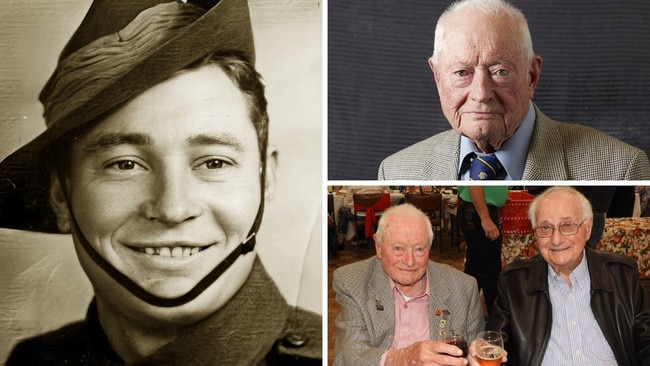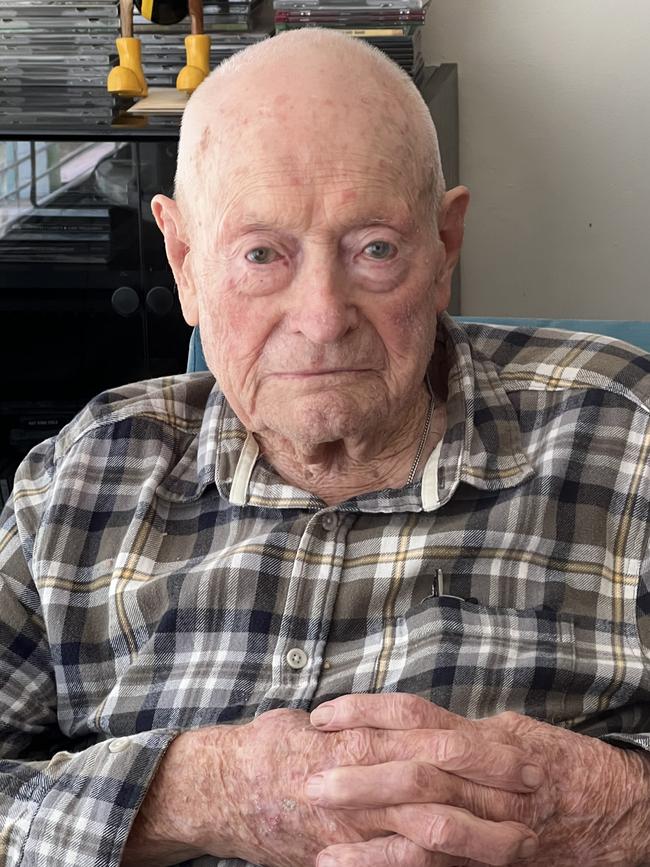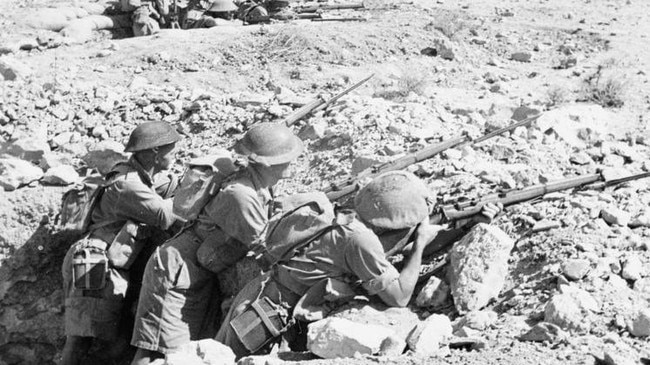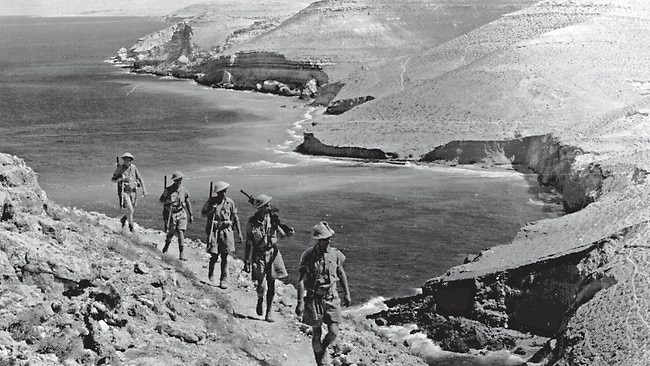Tom Pritchard, Australia’s last Rat of Tobruk, dies aged 102
Tom Pritchard, the last Rat standing, loved the mates he made at Tobruk but hated the war that bound them together, as Australia loses its last living link to one of the most cherished chapters of the Anzac story.

Tom Pritchard, the last Rat standing, loved the mates he made at Tobruk but hated the war that bound them together.
His death at age 102 means Australia has lost its last living link to one of the most cherished chapters of the Anzac story: the Diggers who defied the Axis war machine for 242 epic days in North Africa in 1941 to forge the legend of the Rats of Tobruk.
Mr Pritchard was all-too aware of the responsibility he had shouldered as the lone known surviving Australian Rat. In 2020 his dying mate and fellow Tobruk veteran Alf Jackson, 101, asked him to carry the torch for those who had passed on. “Can you do that for me, cobber?” Jackson implored.
Mr Pritchard said he would try.
Paying tribute to his late “Pop”, grandson Rob Dorber said: “His legacy was one of disgust toward war in all forms.”
A quiet and thoughtful man, Mr Pritchard shunned the attention that focused on the Rats as their ranks thinned and the nation came to grips with the fade-out of the great World War II generation. Over the years, he declined countless media requests to be interviewed. But he was always ready with a joke for his mates, or a helping hand for a Rat doing it tough.
Daughter Judy Dorber told The Australian last year: “He’s a very private person … not at all interested in publicity. He would rather focus on those who are gone than himself.
“My father, the soldier, and my Dad are separate people entirely.”
Mr Pritchard served as an ambulance attendant at Tobruk, having lied about his age to join the army in 1940 as a 19-year-old.

While he would laugh about the lighter side of army life, he never spoke publicly of the horrors he saw and endured during the siege or when he went on to face the Japanese in New Guinea and Borneo with the 2/5th Field Ambulance.
Those memories were to be shared with his brother Rats, not outsiders. Not even his own family.
“Being in an ambulance, Tommy was at the forefront of what war did to people,” said his friend Lachlan Gaylord, the secretary of the Rats of Tobruk Association.
“He would have seen horrible things. He wasn’t so much contributing to the fighting as picking up the pieces … soldiers who were already dead, soldiers who were seriously injured and in a lot of cases he couldn’t do much for them because he wasn’t a trained nurse or orderly.
“He just did what he could to help these men in the grip of unimaginable pain and suffering and you can understand why he didn’t want to talk about it, even many years later. That was a great burden to carry, but he accepted it was his burden to carry.”
Mr Gaylord, 22, kept in touch with the proud old veteran, who managed to stay in his Doveton home in Melbourne’s outer southeast until almost the end. About two years ago, when it became evident that he could be the last Rat standing, they talked about how Mr Pritchard wanted to be remembered.
He told the young man: “I don’t want to be made a martyr.”
The real heroes were the mates whose time had come before him. Mr Pritchard was so modest he politely but firmly turned down the offer of an Order of Australia Medal in 2016, around the 75th anniversary of the siege of Tobruk.
The dusty, flea-infested Libyan port became a symbol of Allied defiance as the garrison stiffened by 14,000 Australian troops withstood everything Erwin Rommel’s Afrika Korps and the Italians threw at them. Tobruk did not fall until mid-1942, after the Diggers were withdrawn.

One of the few experiences Mr Pritchard would recount was his vivid memory of subsisting on “goldfish” – the tinned herring in tomato sauce that the Australians came to despise.
Ambulances were sent out with two-man crews of a driver and attendant for the wounded, who were packed in the back on flimsy stretchers. If Mr Pritchard drew that duty, his job was to provide what first aid he could and prevent the wounded from being jolted out of their berths while the ambulance bounced from the front lines to a casualty dressing station or the main hospital on the shattered harbour.
Under fire, the journey could take two nerve-racking hours. Many of the injured men were so gravely hurt they didn’t make it.
The Rats never had enough carefully rationed water at Tobruk, but when they arrived in Milne Bay on the eastern tip of what’s now PNG, they cursed the torrential rain and mud that made their lives a misery.
As they had done in the Western Desert, the Australians stood strong, beating back an invasion force of crack Japanese marines and soldiers in a series of battles that raged through August and early September 1942. Mr Pritchard contracted malaria and was evacuated home. He returned to help the Australian and US forces chase the Japanese out of New Guinea and participated in the amphibious assault on Borneo in 1945, the last major Allied campaign of the Pacific War.

When peace came, Mr Pritchard quietly went back to his job with a tobacco and “fancy goods” importer in Melbourne and married his sweetheart, Gwen. They raised four children together.
Mr Pritchard was only weeks short of his 103rd birthday when he died in respite care in Melbourne at the weekend. In accordance with his wishes, he will be farewelled at a private funeral on Thursday.
Mr Gaylord said Australia had lost something irreplaceable: “Tommy was that last verbal orator of Tobruk, that last link. For the 83 years since the siege of Tobruk we’ve had someone to carry the torch and what this signifies is the passing of that responsibility to the next generation, the children and the grandchildren, the history lovers of the country, to keep it burning.”
Of the nearly one million Australians who fought or served in WWII, fewer than 2500 remain, aged on average 99.6 years, according to the Department of Veterans’ Affairs.




To join the conversation, please log in. Don't have an account? Register
Join the conversation, you are commenting as Logout